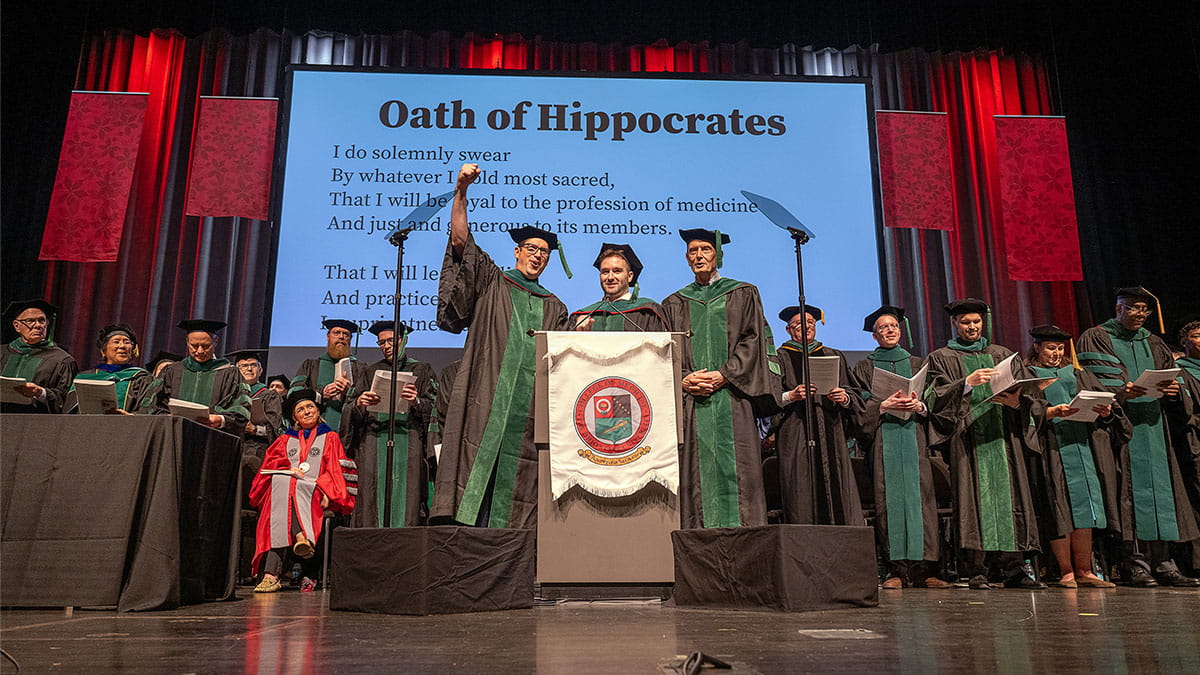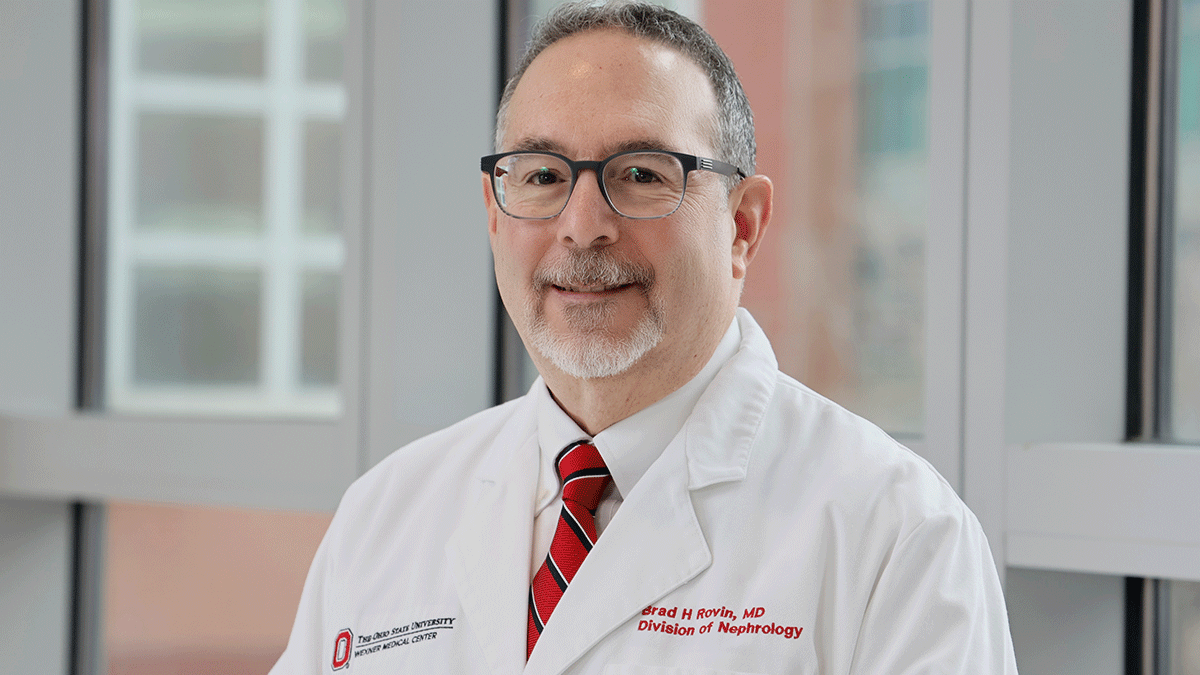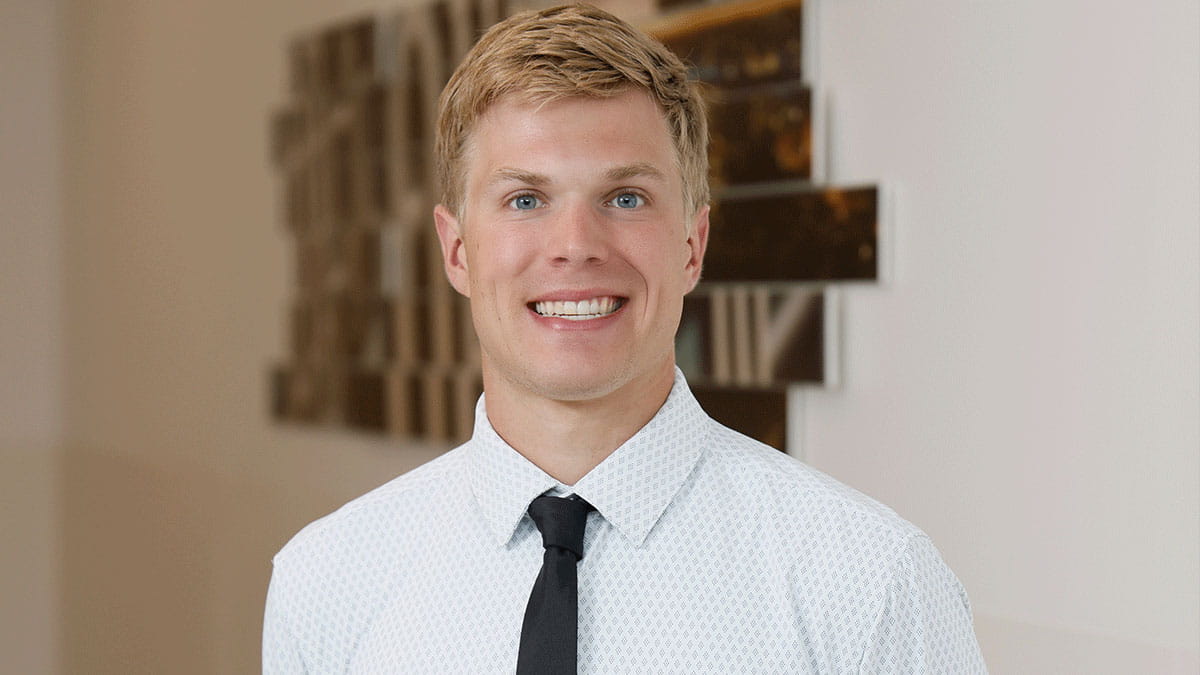Community-engaged research and three faculty receive support from Office of Outreach and Engagement

To address and solve societal challenges, The Ohio State University engages and partners with communities outside of campus to elevate the quality of life for those in Ohio and beyond. To further integrate university and community resources, The Ohio State Office of Outreach and Engagement just awarded a research grant for a study to examine evidence-based practices in suicide prevention and invited three faculty members into a cohort-based leadership and professional development program to strengthen their engaged scholarship.
C. Rosie Bauder, PhD, MPH, LPCC, assistant professor in the Department of Psychiatry and Behavioral Health, and Alicia Bunger, PhD, MSW, professor in the Department of Internal Medicine at The Ohio State University College of Medicine, will examine the effectiveness of existing system-wide efforts to work collectively to prevent suicide and support recovery statewide through their Evaluating the Implementation of the 2024-2026 Suicide Prevention Plan of Ohio (SPPO) project.
Dr. Bauder explains that their project is a collaboration between Ohio State’s Suicide and Trauma Reduction Initiative (STRIVE) and The Center for the Advancement of Team Science, Analytics, and Systems Thinking in Health Services and Implementation Science Research (CATALYST). She says her and Dr. Bunger’s combined experience as implementation scientists has the potential to form their findings into interventions that link and integrate services delivered by health and human services organizations.
“Implementation science is all about investigating the best ways to scale and allow things that work to work,” Dr. Bauder says. “My work in the Rivet Lab, merging the most critical components of suicide prevention to inform prevention and intervention strategies, will play a huge role.”
Dr. Bunger’s work focuses on developing strategies that help families navigate siloed service delivery systems to access comprehensive and high-quality care. Her skills will be applied toward assessing current progress made in increasing the number of suicide prevention coalitions and the strengthening of postvention programs in local communities.
“We aim to collect both quantitative and qualitative data on a quarterly basis from SPPO’s strategic partners,” Dr. Bunger says. “This will allow us to help build statewide capacity that addresses barriers of care and factors that contribute to the suicide rate.”
According to Dr. Bauder, the work they do at Ohio State is an amalgamation of multilevel efforts to address suicide across the population, and their combined expertise along with that of their co-investigators' positions them to provide meaningful insight as to their progress on these priority areas.
“The Outreach and Engagement award will help us spread that message by collaborating with our partners with Brainstorm Media, a seasoned team of creatives, to create meaningful content that explains our innovative work.”
The three faculty members joining the Engaged Scholars Academy for a one-year program are:
- Marybel Gonzalez, PhD, assistant professor in the Department of Psychiatry and Behavioral Health, who is also a neurocognitive scientist specializing in identifying risk and resilience factors for substance use prevention and mental health among adolescents.
- Pamela Lu, MD, assistant professor in the Department of Surgery in the Division of Surgical Oncology, specializes in HIPEC and works to identify and mitigate drivers of disparities in cancer outcomes.
- Nichole Michaels, PhD, assistant professor in the Department of Pediatrics, who identifies and evaluates practices for drug overdose harm reduction and treatment of individuals with substance use disorders.
Community-engaged research and supportive leadership at Ohio State helps faculty work across disciplines and build partnerships across the community of scholars, researchers and staff to address grand challenges. Dr. Lu believes the integration of resources available through the Engaged Scholars Academy will strengthen her efforts addressing the many barriers cancer patients face when undergoing the complex and often long-term care associated with the disease.
“A deeper understanding of the unique needs of our population will help us design effective interventions and increase the reach and efficacy of such interventions with our patients,” Dr. Lu says. “This program supports scholars from such a wide array of backgrounds and fields of study that it creates an opportunity to create novel and impactful programs that are sustainable.”
Dr. Gonzalez specializes in addiction science, and her current research is centered on the vital conditions for well-being among adolescents in relation to their neurocognitive development. She is enthusiastic to embark on her training with the Engaged Scholars Academy, as she believes that community-engaged research is essential to identifying both risk and resilience among communities. Dr. Gonzalez believes that working with communities is essential to creating tailored prevention and intervention programs to promote mental health and neurocognitive development among youth.
“I am especially passionate about using research to enhance tailored interventions that can reach youth in their communities,” she says.
Dr. Michaels’ primary research interests include identifying and evaluating practices for drug overdose harm reduction and the treatment of individuals with substance use disorders; developing primary, secondary and tertiary prevention strategies for child maltreatment and understanding the impact of the opioid epidemic on child abuse and neglect.



